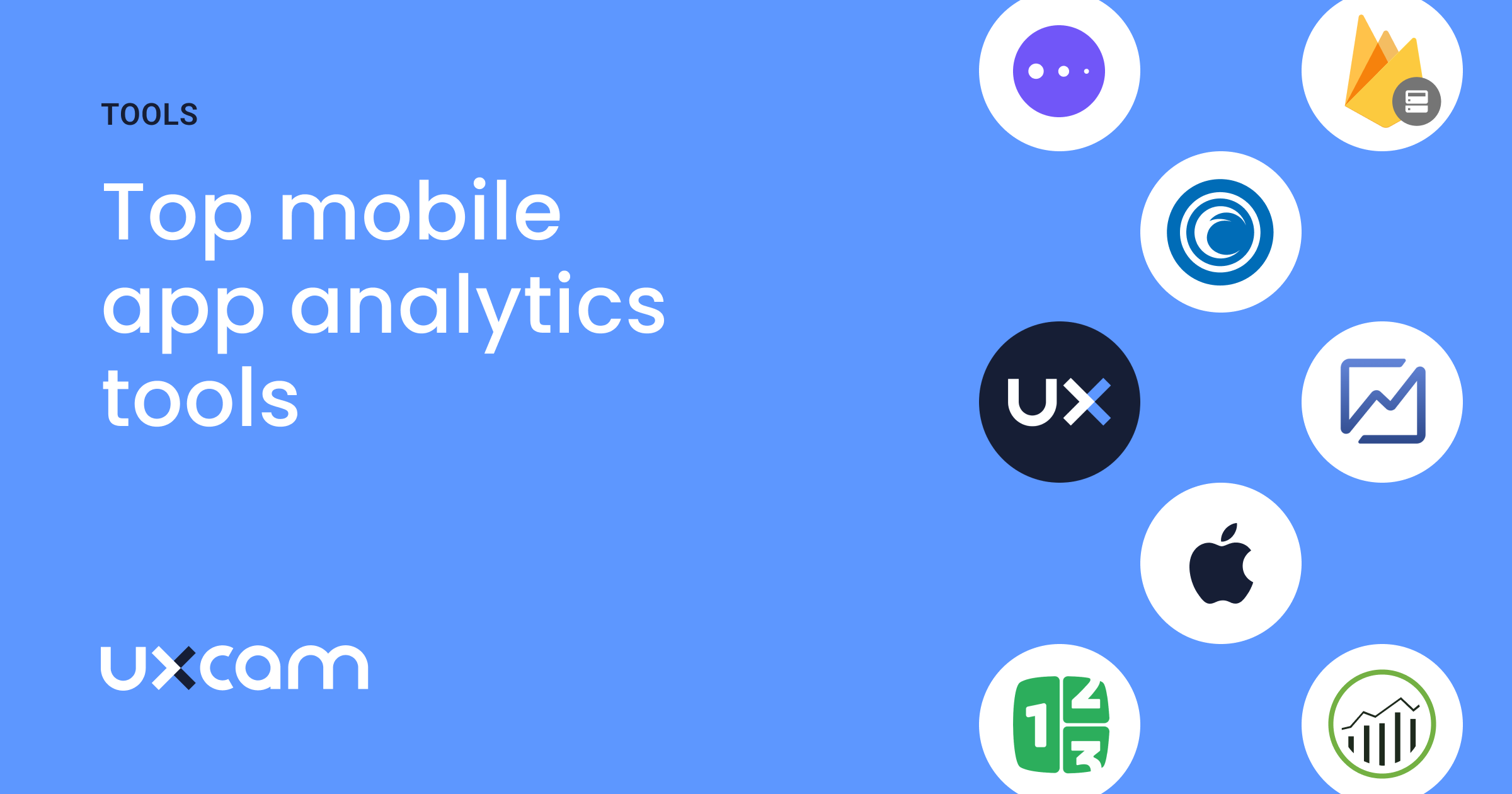Back to blog
6 MIN READ
Conversion funnels for product managers and marketers
PUBLISHED
13 May, 2021

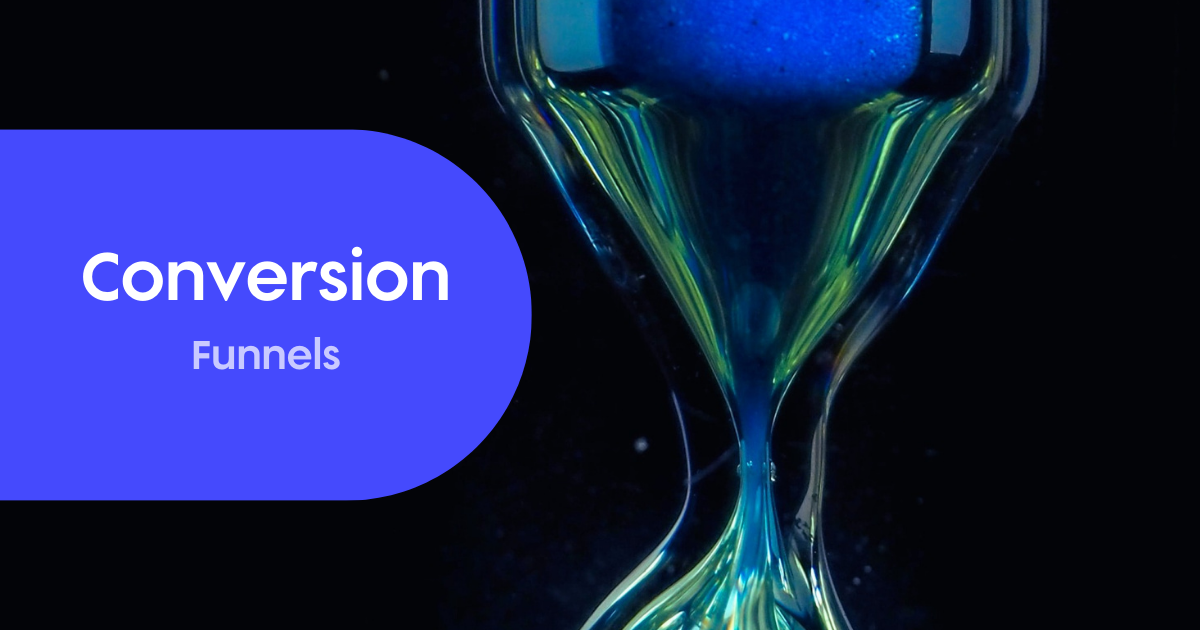
Conversion funnels are among the best tools for both product managers and marketers. Whether you work with a mobile app or a website, you most definitely want to be using funnel analysis.
Don’t know why? Stick around and find out.
What Are Conversion Funnels?
Picture a regular funnel. Instead of pouring a liquid on it, throw in your customers. Some will make it to the end, while others will drop out before the finish line.
Conversion funnels are excellent for mapping user flows and describing the stages in a customer’s journey. Not all of your customers will make it to the end, so you need to understand:
How many are leaving.
Why they are doing it.
When it’s happening.
With funnel analysis, you can easily pinpoint when users drop off and understand why this is happening. This knowledge guides you in changing your product for better retention and conversion rates.
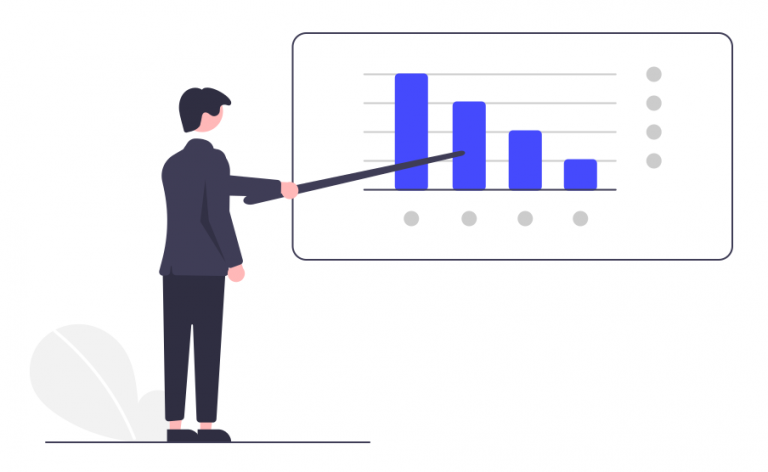

Awareness, Interest, Desire, Action
Take a look at this article for a more holistic view of conversion funnels and the principles behind them.
Awareness, interest, desire, and action are the key aspects of funnels meant to draw prospects in to be turned into customers. These aren’t the funnels we will be dealing with in this article.
Here, we are speaking of conversion funnels within a product. You already have your customers — your users — but some keep dropping off at specific points. Or do they? Without a funnel, you wouldn’t know.
We will be covering why these funnels are particularly relevant for product managers and marketers interested in understanding the user journey. This article speaks of mobile apps specifically, but this can be translated to other types of products with the right tools.


Why Everyone Can Benefit From Conversion Funnels
Moving away from the theory and focusing on funnel analysis, anyone can benefit from analyzing funnels. UXCam offers the most comprehensive funnel analytics solution if your product is a mobile app.
You work with data based on the actual usage of your app: No more assumptions; only cold, hard facts. Identify the steps where your users lose interest or get frustrated with your product. And fix it.
You can:
Find opportunities you don’t want to miss.
Understand what order of user actions gets them where you want them.
Find and fix bottlenecks.
Know where and why users churn.
Optimize your app by making data-driven decisions.
But that isn’t all you can achieve. You can play around with funnels and use them in creative ways that will help you solve other problems.
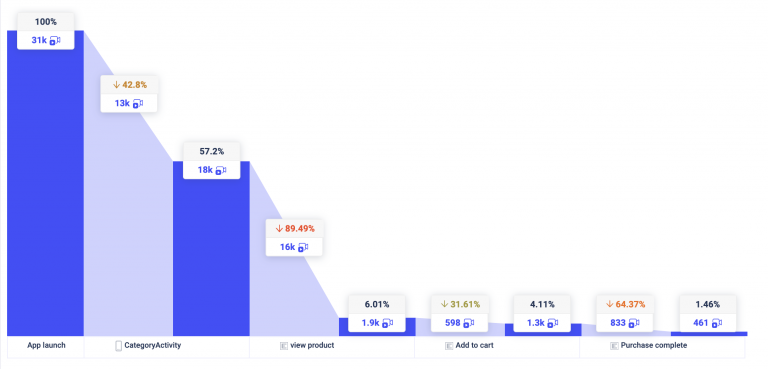

Why Product Managers Need Conversion Funnels
Feature Launches
Funnel analysis can prove to be useful for new feature launches. By grouping your sessions by user or device properties, you can compare the conversions between different user cohorts.
Is the new feature sticking or not? Are your users struggling with it? Are they simply not interested? Looking at the numbers is one thing, but try getting deeper by watching session replays. Now you see what went wrong exactly.
You can test a new feature as much as you want before it goes live, but it’s not until it does that you know how your users will truly respond to it. Let them tell you what they think of it through their actions. Their behavior will show you what needs to be improved.
Example
Let’s say you have always offered your users the option to pay with a credit card for store pick-up, but based on their feedback, you add the feature of paying by cash when they pick their order up.
It should be pretty straightforward, right? Add the option on the same screen where you offer card payment and see the magic happen. But when you look at the numbers after the launch, not many users seem to be using the cash option. In fact, they drop off at the step of payment selection.
Session recordings, heatmaps, events, and user flows will not only validate your funnel but also show you what exactly is wrong with your new payment feature. Apparently, the button to pay by cash is tiny and very hard to click, which frustrates your users and makes them give up.
Luckily for you, that’s an easy fix.
In a Nutshell
Test and validate hypotheses by comparing the conversion rates before and after key product changes.
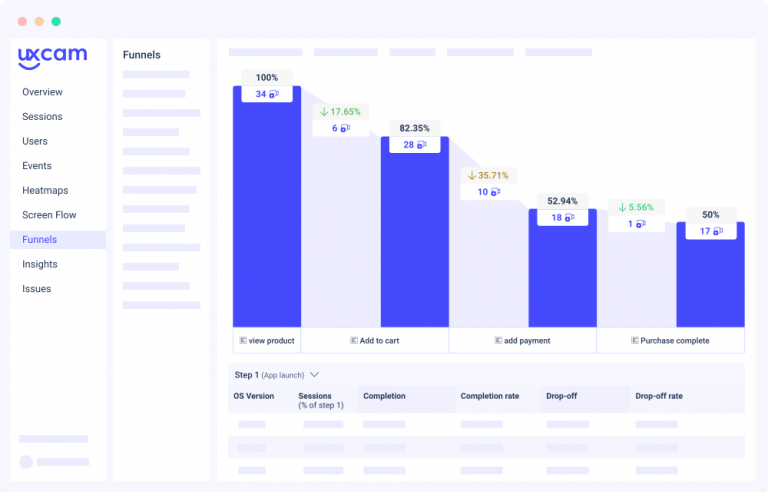

Drop-off Reasons
You need to be aware of when your users are dropping off, but you should also understand why.
Not every user will go on the same journey, so you can create funnels for all of your different customer journeys. Then, examine the conversion funnels beyond the total number of drop-offs. Each step of the funnels will present its own characteristics and nuances. You can understand the reasons why your users are leaving.
Combine your conversion funnels with custom events, session recordings, and user flows, and get both the full picture and the detailed insights.
Example
You have people attempting to sign up for your app but giving up before they finish the registration process.
Your conversion funnel tells you that the biggest drop-off is taking place when creating the accounts, and you can see exactly how many users are churning at this point. But why?
Upon reviewing the affected sessions, you identify an issue with the email sign-up option. The button is unresponsive, and the users that want to sign up by connecting their email see this flaw in your app and lose trust in your product.
In a Nutshell
Quantitative tools give you the raw numbers but fail to help you understand where the problems lie. Complete funnel analysis solutions, like UXCam, also provide you with the qualitative insights needed to improve your product and conversions.
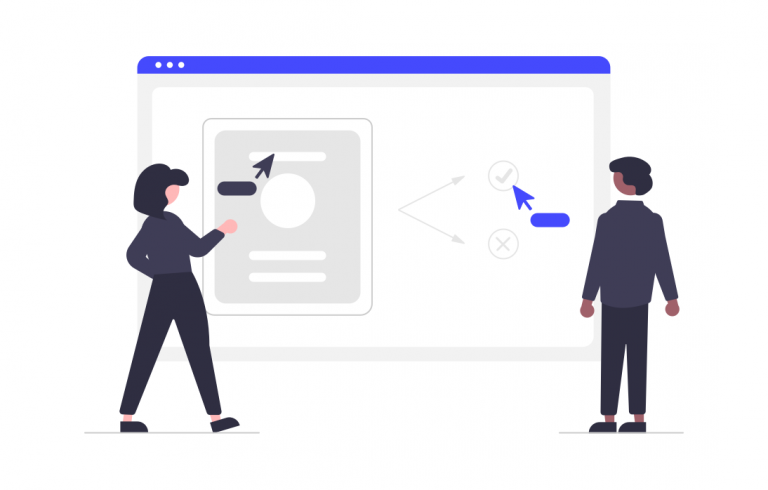

Why Marketers Need Conversion Funnels
Conversion Numbers
Don’t settle with the general overview of conversion numbers. Break them down according to the different acquisition channels and figure out where your most valuable users are coming from.
This way, you can focus your efforts on the more relevant channels.
Example
You work with an e-commerce app. You want to know how many paying customers come from each acquisition channel, but it isn’t easy to get that data — until now.
Look at each step of the funnel and identify how many conversions are happening. Then, use filters for the different acquisition channels and get the numbers you need.
In a Nutshell
Get a quick snapshot of the conversion numbers for your marketing projects and channels, and focus on each different step. Filter by acquisition properties and know which channels convert more.
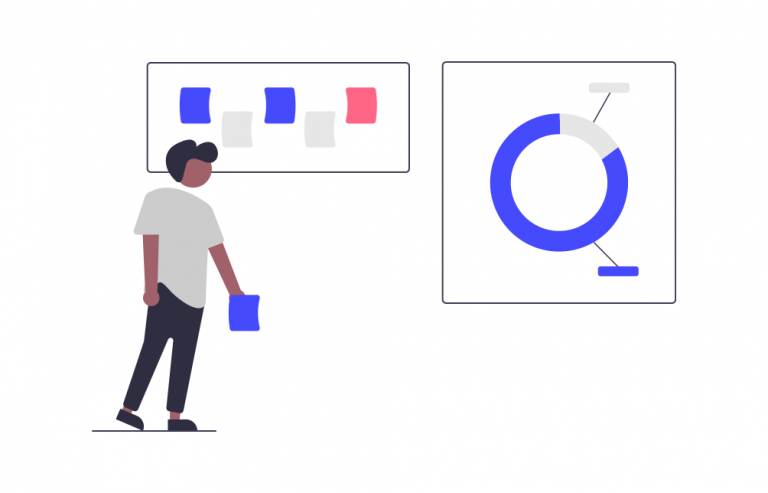

Measure the Impact of Changes
As a marketer, you change the content and the design of the app you work on. You do plenty of research before implementing these changes, but you also need to look at the data once your work is out there.
Conversion funnels show you the flow of customers through the affected screens of the app. Are users converting more thanks to the changes? And how exactly is this happening? Get a deeper understanding of your user behavior by replaying the affected sessions.
Example
You�’re changing your messaging and, with it, your copy.
Compare your conversion funnels before and after the changes, and measure the impact of your new copy. If your users are dropping off more, you want to know where you’re losing them. Maybe your new strategy is better overall but falls short on a specific screen.
Give your users what they want and see your conversions skyrocket.
In a Nutshell
Qualitative session recording aids in understanding how the changes you make impact conversions. Funnel analysis doesn’t stop with conversion funnels.
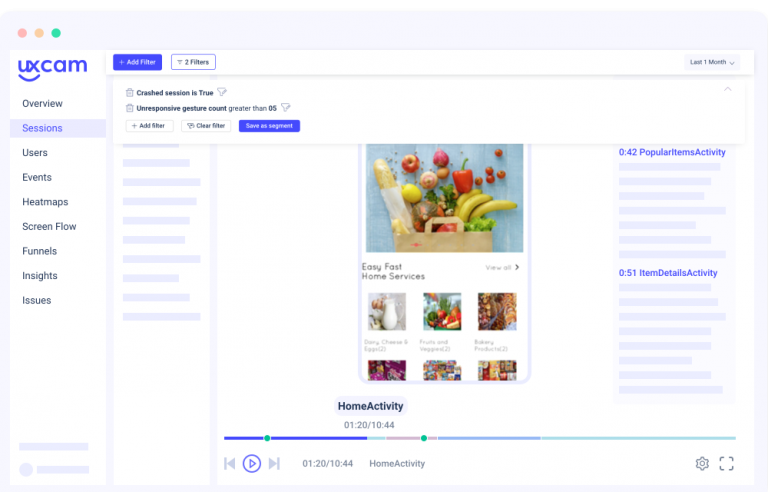

Conclusion
Conversion funnels provide you with quantitative data about the number of customers that churn at each stage of the funnel. While this information is already valuable, paired up with qualitative data, it gives you all the insights you need to retain more customers.
Analyze the steps where customers keep dropping off and look at the context. Why are they losing interest now? What can you do to improve the user experience to get them to stay instead?
Session recording is a powerful tool when combined with funnels, but so are events, which will make your conversion funnels clearer than ever. Measure your results to the last detail and back your hypotheses with data.
After all, understanding user behavior is key to making the right decisions for your product — and your users.
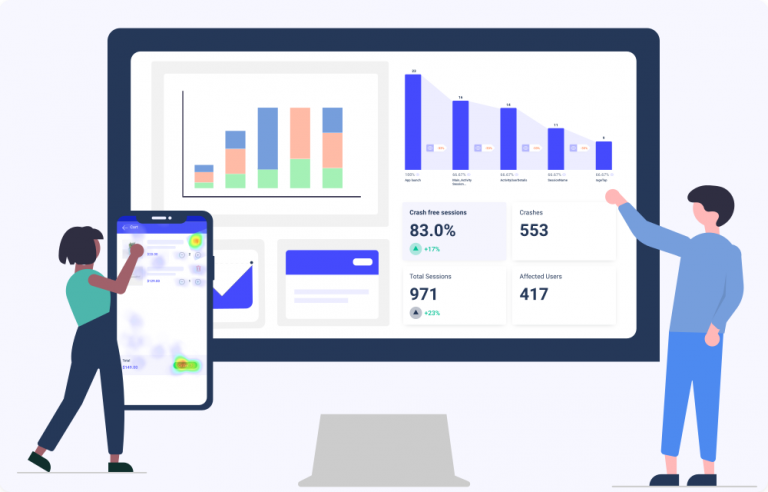

Related Articles:
AUTHOR

Ángela Gómez Sánchez
Passionate about linguistics and helping you deliver the perfect app experience.
What’s UXCam?
Related articles
Tool Comparisons
Smartlook vs UXCam: Which is the better mobile app analytics solution for modern teams?
Detailed comparison of Smartlook and UXCam for React Native, Flutter, iOS, and Android apps. See SDK differences, session replay quality, and why UXCam is the stronger choice for mobile...

Begüm Aykut
Growth Marketing Manager
App Analytics
Mobile App Tracking: Practical Guide & Best Tools [2026]
The best tracking tools for mobile...

Jonas Kurzweg
Product Analytics Expert
Curated List
Top 19 Mobile App Analytics Tools in 2026
Discover the top mobile analytics tools in 2026. Compare features, pricing, and reviews to choose the right platform for app tracking, behavioral insights, and data-driven...

Jonas Kurzweg
Product Analytics Expert

